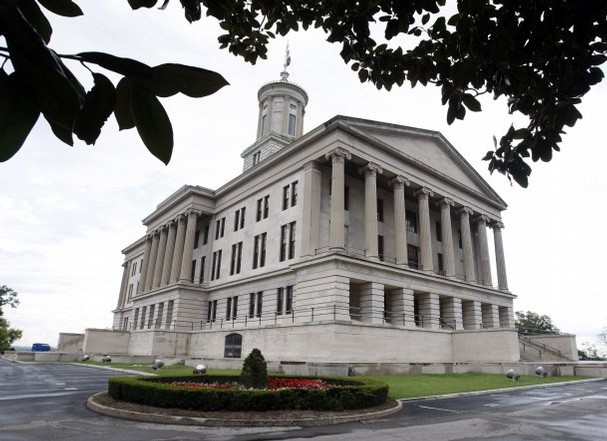NASHVILLE - Four years after the Libertarian Party of Tennessee filed its first lawsuit to get on the ballot, the group is still fighting for access in a state that has some of the most restrictive rules in the country for smaller political parties.
Since 2010, the Libertarians, the Green Party of Tennessee and the Constitution Party of Tennessee have been in near-constant litigation with the state. They have won several victories, and the legislature has changed the law slightly. But the parties say the hurdles for them to get their names on the ballot are still unreasonably high.
A 2010 federal court ruling in one of the cases stated that Tennessee was one of only two states where no third parties had qualified for the ballot over the previous decade.
Individual candidates can appear on Tennessee's ballot simply by submitting a petition with 25 signatures, but they will appear as independents unless their parties have qualified to appear on the ballot as well. For a party to appear on the ballot, it must collect more than 40,000 signatures. If the party wants to stay on the ballot, one of its candidates must garner more than 80,000 votes.
A recent opinion from the 6th U.S. Circuit Court of Appeals in one of the cases says the ease with which an independent candidate can get on Tennessee's ballot undermines the state's argument that too many parties could result in voter confusion.
"It is a puzzling proposition that voters should be less confused by a ballot listing numerous candidates without a party designation than by a similar ballot including party designations." The court goes on to say that a ballot with party designations "at least, contains information helpful to distinguishing among lesser-known candidates."
Donn Janes, vice-chair of the Libertarian Party of Tennessee, said he believes the major parties intentionally make it difficult for minor parties.
"Libertarians would erode some of the voter base for the Republican party," he said. "I can see why they would want to keep us off the ballot."
A state Republican Party spokesman declined to comment. Ken Kollman, a political science professor at the University of Michigan, said it is clear that "a strong Libertarian candidate in any state is going to hurt the Republicans."
He said both Republicans and Democrats have traditionally tried to limit the influence of third parties.
"They'd rather have a two-party competition than a three-party competition," he said. "It's more predictable, and it's a way of keeping your dissidents within the fold."
Tennessee first began restricting ballot access in the early 1960s. Richard Winger is editor of Ballot Access News, a subscription newsletter and website that covers developments in the law affecting the legal status of political parties and independent candidates.
He said Tennessee's ballot restrictions came shortly after the segregationist and anti-Semitic National States' Rights Party appeared on the ballot. At the time, Winger said, "sophisticated, respectable people simply did not run for office outside the major parties.
"But you have two independent U.S. senators now."
In a lawsuit filed recently, attorneys for the state Libertarian Party claim Tennessee's ballot access laws violate party members' constitutional rights to free speech, association and equal protection.
U.S. District Judge William Haynes has twice ruled in favor of the Green and Constitution parties on similar claims. The state has appealed those rulings, but the appeals do not invalidate Haynes' order requiring the two parties to appear on the ballot at least through 2015.
Winger said that if it not for the court order, Tennessee would join Oklahoma as the only other state without third-party candidates on the ballot this year.
The Libertarian Party was not a plaintiff in that lawsuit and was not included in the order, so the party has filed a separate petition asking the U.S. District Court to rule that its chosen candidate for governor, Daniel T. Lewis, must be allowed to be listed as a Libertarian.
"If the state, if the Republican Party, wants to discriminate and manipulate the laws to hang on to power, we've got to stand up to them and force them to do the right thing," Janes said.

